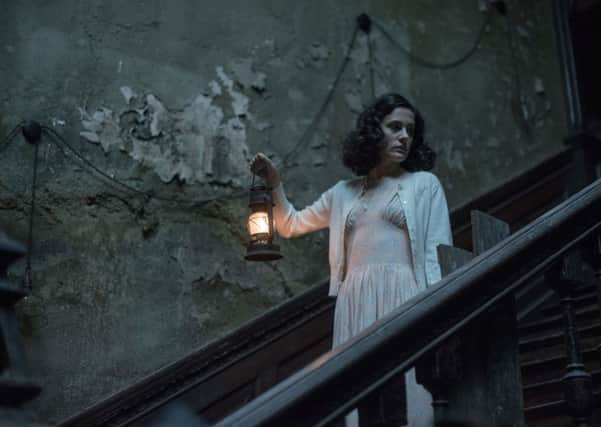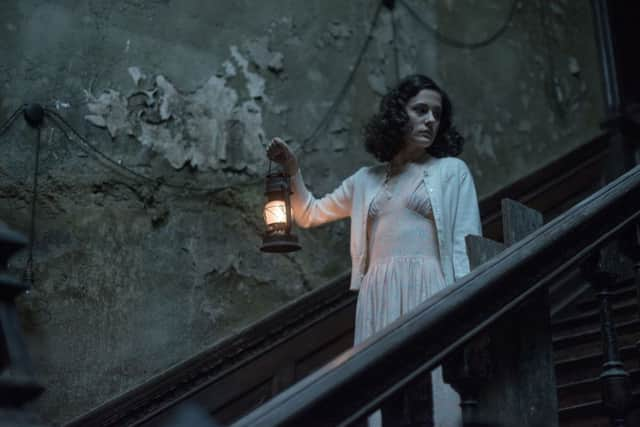Film review: The Woman In Black: Angel Of Death


The monsters that induced wide-eyed terror in our childhood lurked under the bed or in the wardrobe.
They were silent, deadly menaces, conjured by febrile imaginations and drip-fed on our irrational yet all-consuming fear.
Advertisement
Hide AdAdvertisement
Hide AdOver the decades, film-makers have preyed mercilessly – and sometimes masterfully – on this deep-rooted, primal paranoia to quicken the pulse and whiten our knuckles.


Hammer Horror’s 2012 film version of The Woman In Black, based on Susan Hill’s celebrated horror novella of the same name, certainly hit a raw nerve.
Blessed with a post-Harry Potter leading role for Daniel Radcliffe, the resolutely old-fashioned haunted house yarn became the most successful British horror film for 20 years.
When those box office tills started ringing, Tom Harper’s sequel was a foregone conclusion.
Advertisement
Hide AdAdvertisement
Hide AdSet 40 years later during the Blitz, Angel Of Death continues the reign of terror of the vengeful ghost, which haunts the cobweb-strewn hallways of Eel Marsh House.
Stern headmistress Jean Hogg (Helen McCrory) and sensitive teacher Eve Parkins (Phoebe Fox) evacuate a group of London schoolchildren to the countryside including a shell-shocked boy called Edward (Oaklee Pendergast), whose parents perished in the latest barrage of German bombs.
Their guide, Dr Rhodes (Adrian Rawlins), shepherds the school party to its new home: the dilapidated Eel Marsh House.
“The place has been deserted for years,” he assures the women and their wards.
Advertisement
Hide AdAdvertisement
Hide AdUnaware of the building’s grim history, the school party settles into a new routine.
The spectre of the house (Leanne Best) latches onto Edward, who is being bullied, and exacts revenge on one tormentor Tom (Jude Wright) before turning her attention to the other interlopers.
Eve musters her courage to protect her young charges, aided by a handsome pilot called Harry Burnstow (Jeremy Irvine), who is stationed nearby.
The Woman In Black: Angel Of Death is bereft of original ideas and resorts to a familiar array of ominous creaks and groans to herald the arrival of the eponymous spirit.
Advertisement
Hide AdAdvertisement
Hide AdFox’s plucky heroine puts herself in harm’s way with such foolhardy regularity, you have to question her suitability as a teacher.
Meanwhile, McCrory purses her lips for portentous remarks like, “Our worst enemy is ourselves: our fears, doubt, despair. That’s what will destroy us.” Duly noted.
In response, perhaps, to complaints from parents about the 12A classification of the first film, Harper’s sequel sports a 15 certificate and a warning about strong horror and threat.
Ironically, the original was scarier and shoe-horned more jump-out-of-your-seat boos into 90 minutes.